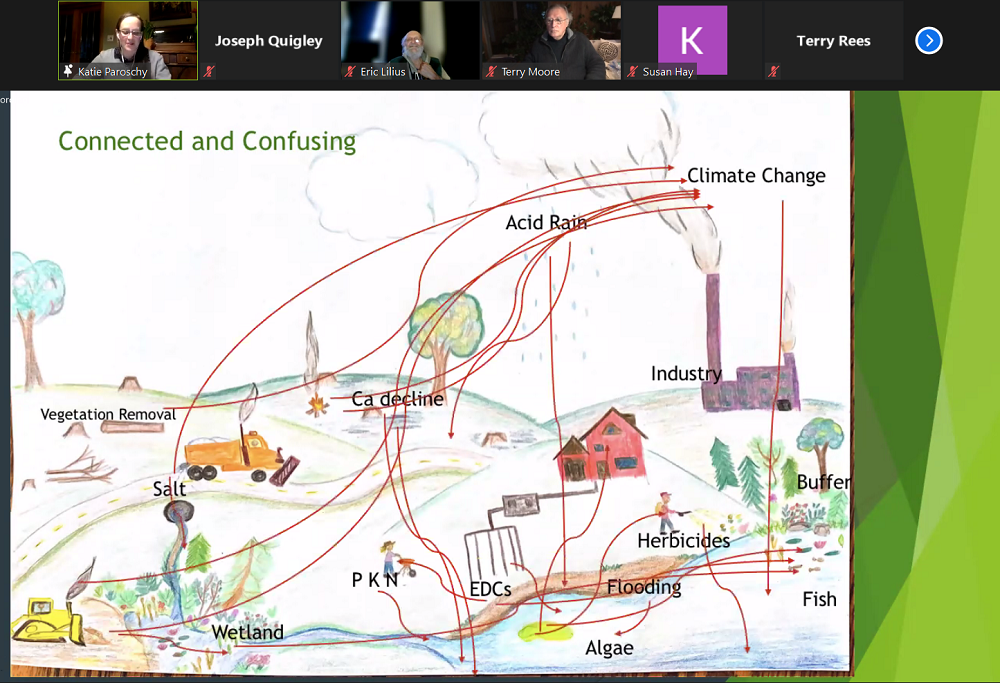Biologist Katie Paroschy used a handdrawn diagram recently to illustrate the many stressors impacting local lakes.
Paroschy presented at an online EnviroCafé for Environment Haliburton! She was invited to discuss the intersection of threats to watershed health. Whether climate change, salt, calcium decline, vegetation removal, herbicides, or industry, Paroschy told 70 attendees the factors can amplify each other to create problems.
However, the project manager for Zygoptera Consulting and Permit Management – a new local environmental consulting firm – offered plenty of ways for people to address those issues. She suggested supporting research, advocating to governments, or taking measures on private property.
“Lake health and watershed health is confusing. It’s multi-faceted,” Paroschy said. “But that doesn’t mean you can’t do anything about it. You have the power to help, and together, we can make a difference.”
Paroschy’s presentation went over each lake stressor in detail. She discussed how winter road salt is contaminating lakes, the negative impacts of pesticides and herbicides and the harm of reducing natural vegetation along shorelines. She said the factors add up – amplified by climate change – and cause harm, such as by reducing fish or increasing algae blooms.
Federation of Ontario Cottagers Associations assistant lake stewardship coordinator Liz Favot, during a questionand-answer session, said it is important to examine the interactions between different harms.
“Often, I think just by necessity, some of these stressors are kind of siloed,” Favot said. “But they definitely interact with each other.”
Paroschy suggested keeping natural vegetation intact. She said even though people have different viewpoints, there should be widespread agreement about the importance of water.
“Encourage other lake users to get them to explore the lake,” she said. “Eventually, everybody will hopefully be doing more to decrease these stressors.”
“Join and support your local lake associations,” Minden Hills Coun. Bob Carter added. “Who are sampling and monitoring water quality as well as influencing government.”
Paroschy said there are also plenty of local scientists examining the issues who are worth supporting. But she said it is vital to support plant life and that “nature knows best.”
“We’re in a time where we can’t hug the people we care about, but you know, you can hug a tree,” she said. “Get outside and thank a plant, because we wouldn’t exist without them.”





